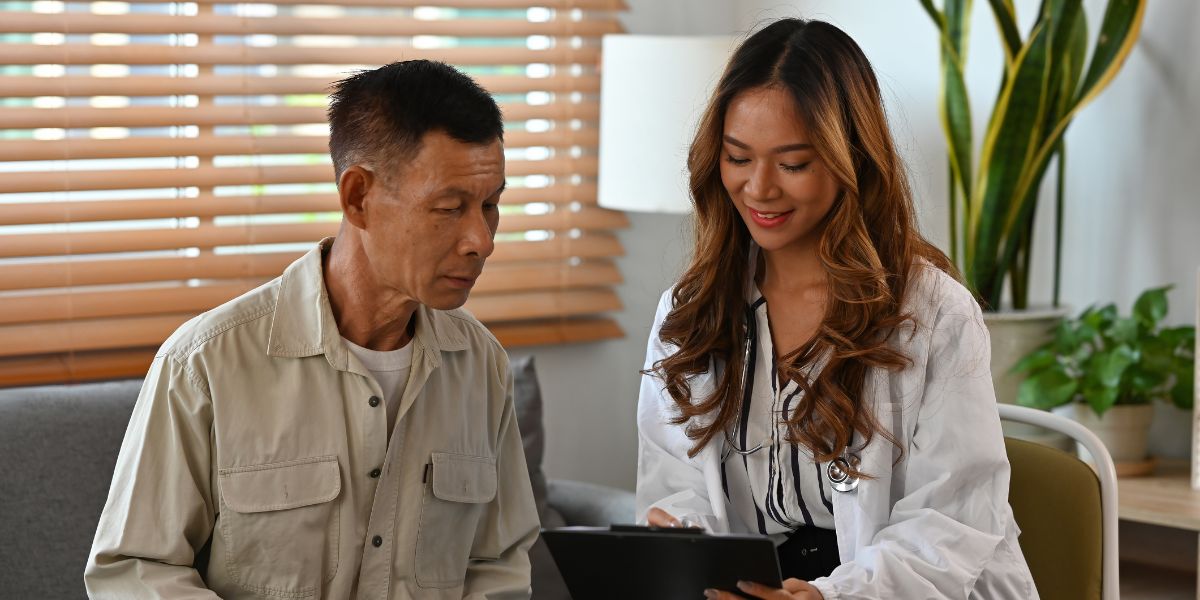A hidden genetic variant found in Black and Asian men could cause delays in them being diagnosed with type 2 diabetes, new evidence has indicated.
A genetic variant known as G6PD deficiency was detected in around one in seven Black and one in 63 South Asian men in the UK, according to a recent study.
Previous research has found that men with the genetic disorder are more likely to be diagnosed with type 2 diabetes four years later compared to those without G6PD deficiency.
However, less than one in 50 men with G6PD deficiency have been diagnosed, the results have revealed.
- New form of type 1 diabetes identified in black patients
- Iron overload more common among East Asian populations
Type 2 diabetes is not triggered by G6PD deficiency. It does however make an HbA1c blood test appear artificially low, which can mislead healthcare professionals and delay a diagnosis of type 2 diabetes.
Lead author Professor Inês Barroso said: “Our findings highlight the urgent need for changes to testing practices to tackle health inequalities.
“Doctors and health policy makers need to be aware that the HbA1c test may not be accurate for people with G6PD deficiency and routine GP6D screening could help identify those at risk. Addressing this issue is not only crucial for medicine, but for health equity.”
Affecting more than 400 million people around the word, G6PD deficiency is a genetic condition prevalent among people with Asian, African, Mediterranean and Middle Eastern backgrounds. The condition rarely causes symptoms and is more common in men than it is in women.
Results from this trial have shown that men with G6PD deficiency are 37% more likely to develop diabetes-related microvascular complications compared to those without the genetic condition.
Dr Veline L’Esperance said: “These findings are deeply concerning because they show how a widely used diagnostic tool may be failing communities that are already disproportionately affected by type 2 diabetes.
“Too many people are being left undiagnosed until it is too late to prevent serious complications.”
- Women with type 2 diabetes should not be prescribed HRT in tablet form due to blood clot risk
- Having type 2 diabetes may double the risk of sepsis
Dr L’Esperance added: “We need greater awareness among healthcare professionals and stronger policies to ensure equitable screening and diagnosis.
“That is why we are launching ‘Black Health Legacy’, which aims to be the largest health research programme focused on tackling diseases that disproportionately affect people from Black backgrounds. This is about saving lives and tackling long-standing inequalities in our healthcare system.”
Professor Faye Ruddock, Chair of the Caribbean and African Health Network, said: “Black communities in the UK experience health inequalities, particularly relating to type 2 diabetes.
“Stigma, language and cultural differences can contribute to delayed diagnosis, while reduced physical health checks and screening opportunities in predominantly Black communities also contribute to this disparity.”
She added: “This study highlights important evidence that must be used to tackle these health inequalities and improve outcomes for Black communities.
“Preventative measures are now needed to ensure that Black people, especially men, are not underdiagnosed or diagnosed too late.”
Anna Morris, Assistant Director of Research and Co-lead for Tackling Inequities at Diabetes UK, said: “Black and South Asian people in the UK are twice as likely to be living with undiagnosed type 2 diabetes than white people and face worse health outcomes once diagnosed.
- Heart disease and type 2 diabetes risk reduced by art programmes
- Cannabis use may quadruple the risk of type 2 diabetes
“These disparities are unacceptable and must be addressed to ensure equitable diabetes care for all.”
She added: “If our most common test to diagnose and monitor type 2 diabetes isn’t accurate for people of all ethnicities, it could seriously compound these problems and leave people without the care they deserve.
“Without the reliable tools they need, health care professionals risk missing or misdiagnosing type 2 diabetes.”
Dr Esther Mukuka, Director of Research Inclusion at the NIHR, said: “At NIHR, we are committed to ensuring research drives fairer health care for all.
“Addressing the impact of G6PD deficiency on diabetes testing is an important step toward reducing inequalities and making sure that everyone, regardless of background, benefits equally from medical advances.”
Read more in the journal Diabetes Care.









